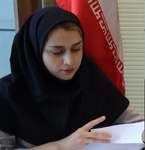“Without anti-ISIL measures no country will be secure and stable whether in the region or in Europe,” Shamkhani said in a meeting with Nasir Khan Janjua, Pakistan’s Advisor to Prime Minister on National Security, on Monday.
Pointing to the historical and civilizational ties as well as cultural and religious commonalities between the two countries, Shamkhani stressed the importance of developing bilateral relations and cooperation in various fields.
He described the critical situations in the region and in particular the enhancement of devastating problem of terrorism which has become an international conflict, a common threat to both countries and said, “activating bilateral cooperative structures and designing common mechanisms consistent with the change of threat-causing components are among urgent measures which need serious consideration by the relevant organizations of the two countries.”
Pointing to the multiple opportunities of cooperation between the two countries, Shamkhani urged the need for the will of the governments of the Islamic Republic of Iran and the Islamic Republic of Pakistan to deepen and expand bilateral cooperation on issues related to the Muslim world.
Nasir Khan Janjua who is in Tehran for a 3-day visit on the invitation of Iranian government, also underlined the need for Islamic countries’ vigilance against foreign threats aiming to provoke conflicts among Muslims.
“Pakistan will expand security and economic relations with the Islamic Republic,” he noted.
He expressed concern over the critical situation in Muslim countries due to the hideous phenomenon of terrorism, adding “no doubt the current crises in the Muslim world is due to the long-term plots of enemies to eliminate the infrastructure, human and financial resources of Islamic countries with an approach to weaken the Muslim world against the West.
“After the nuclear deal and the lifting of sanctions against Iran, a new era have been provided for developing economic, trade and commerce cooperation which needs new steps in a joint effort to bring them to fruition,” he concluded.
LR/3723138


























Your Comment